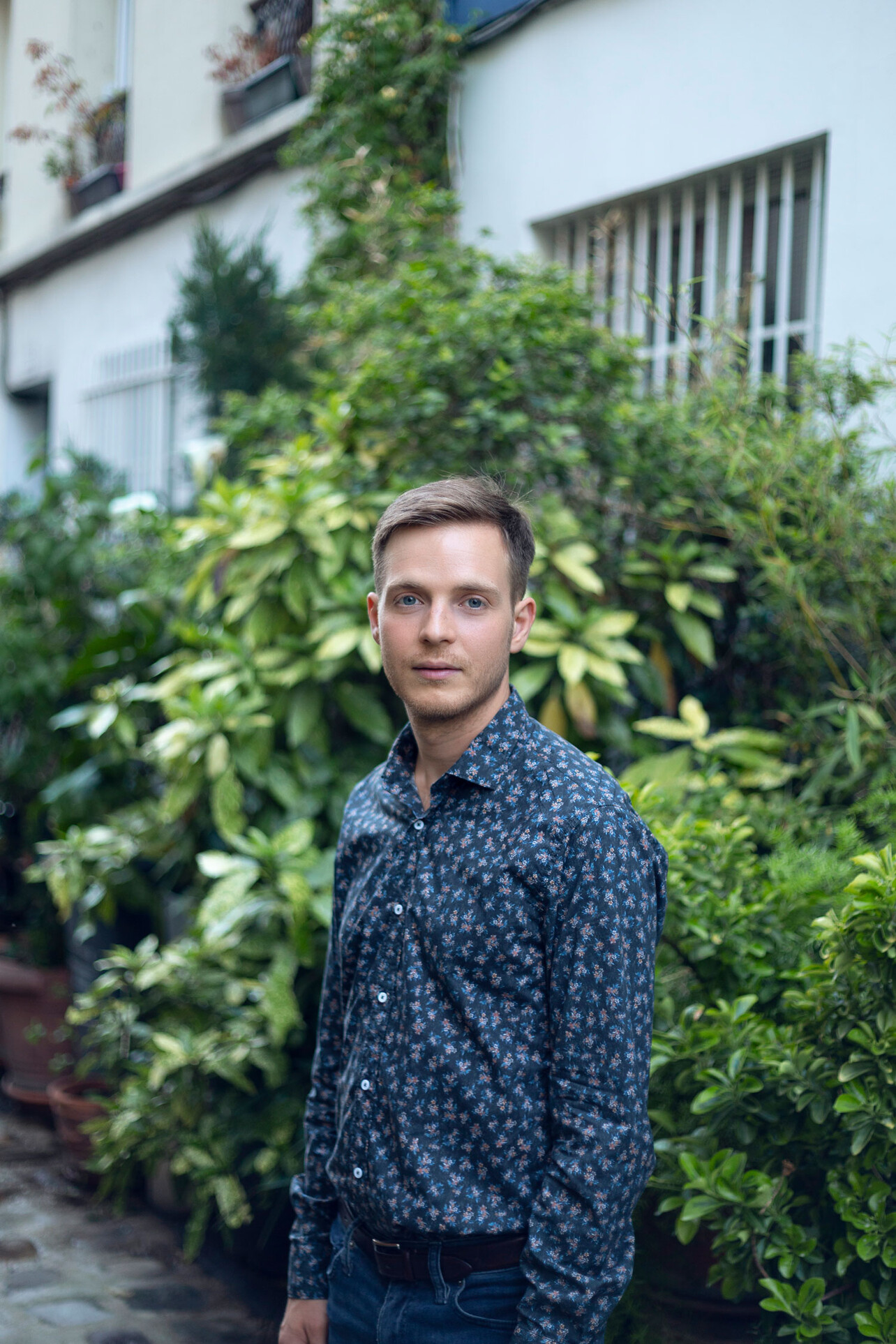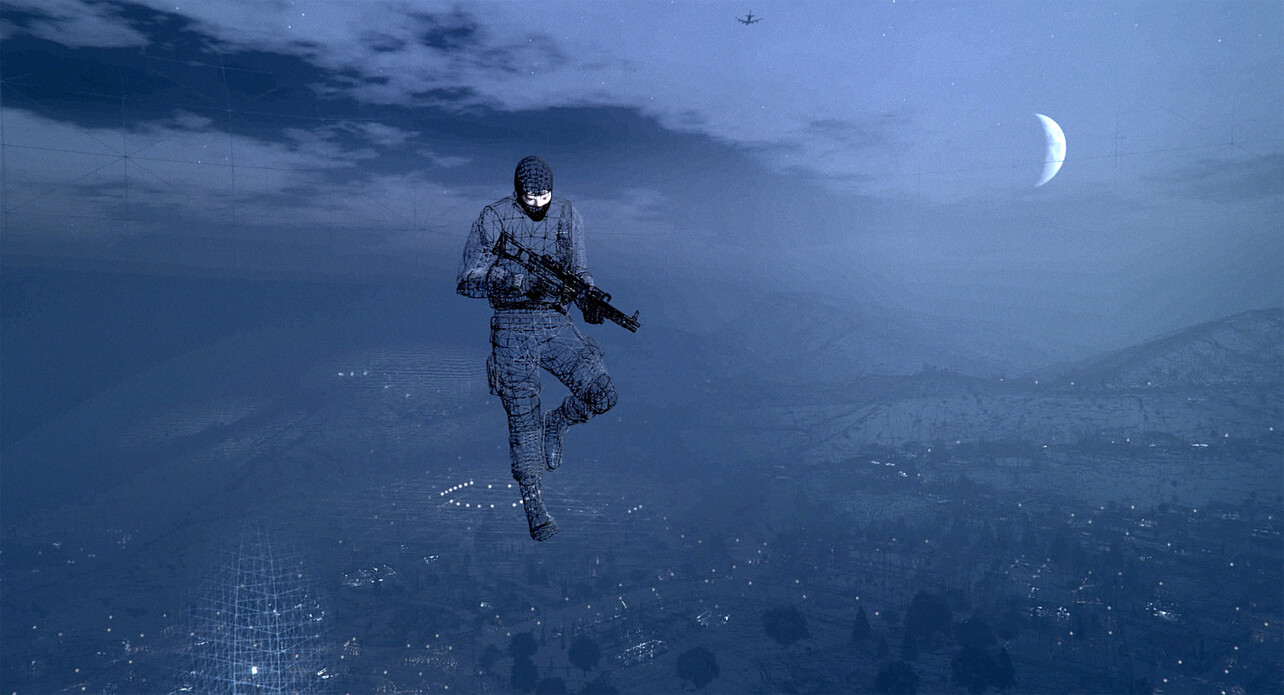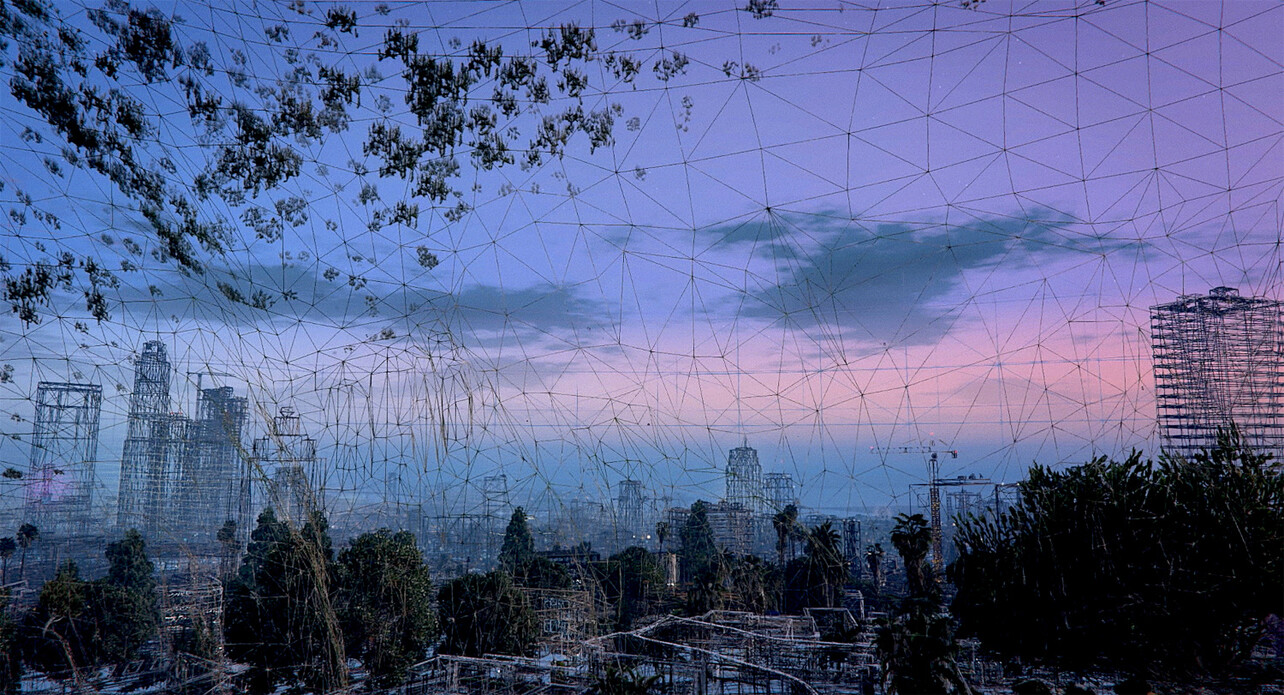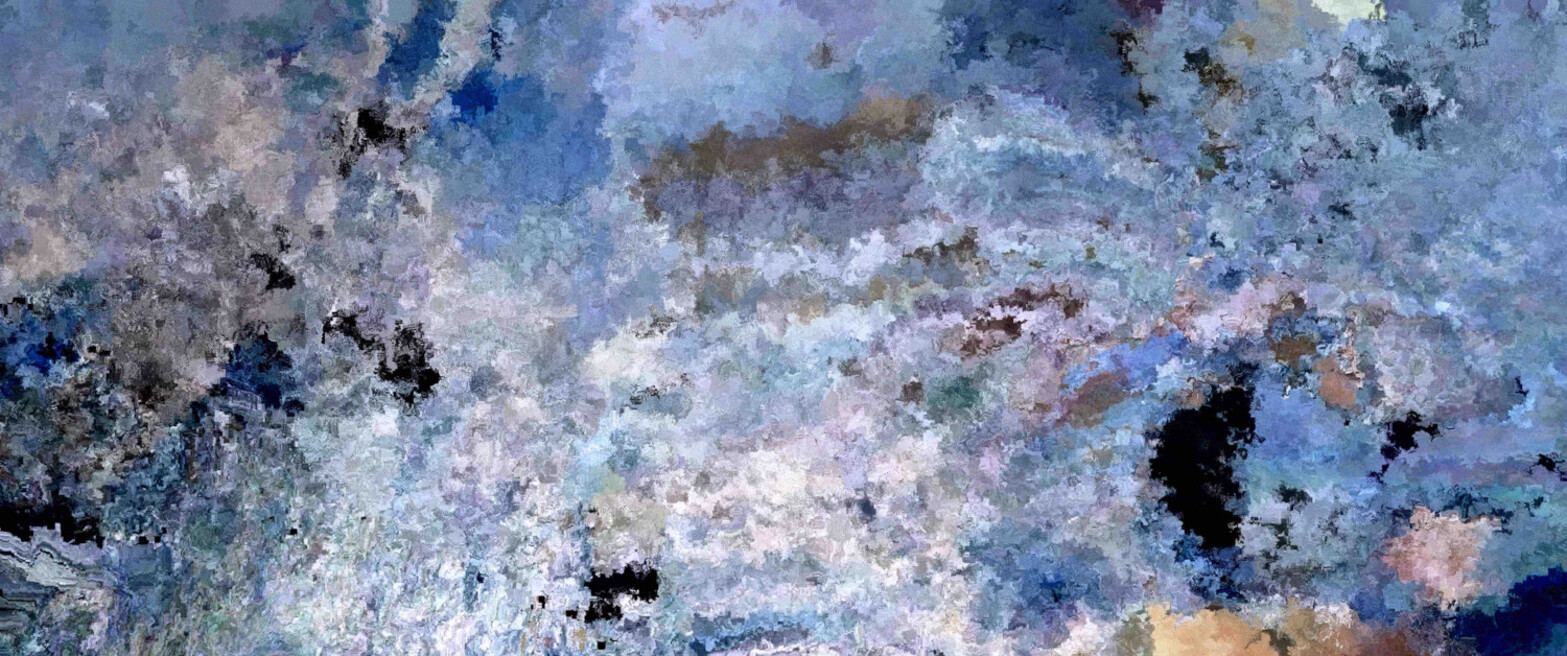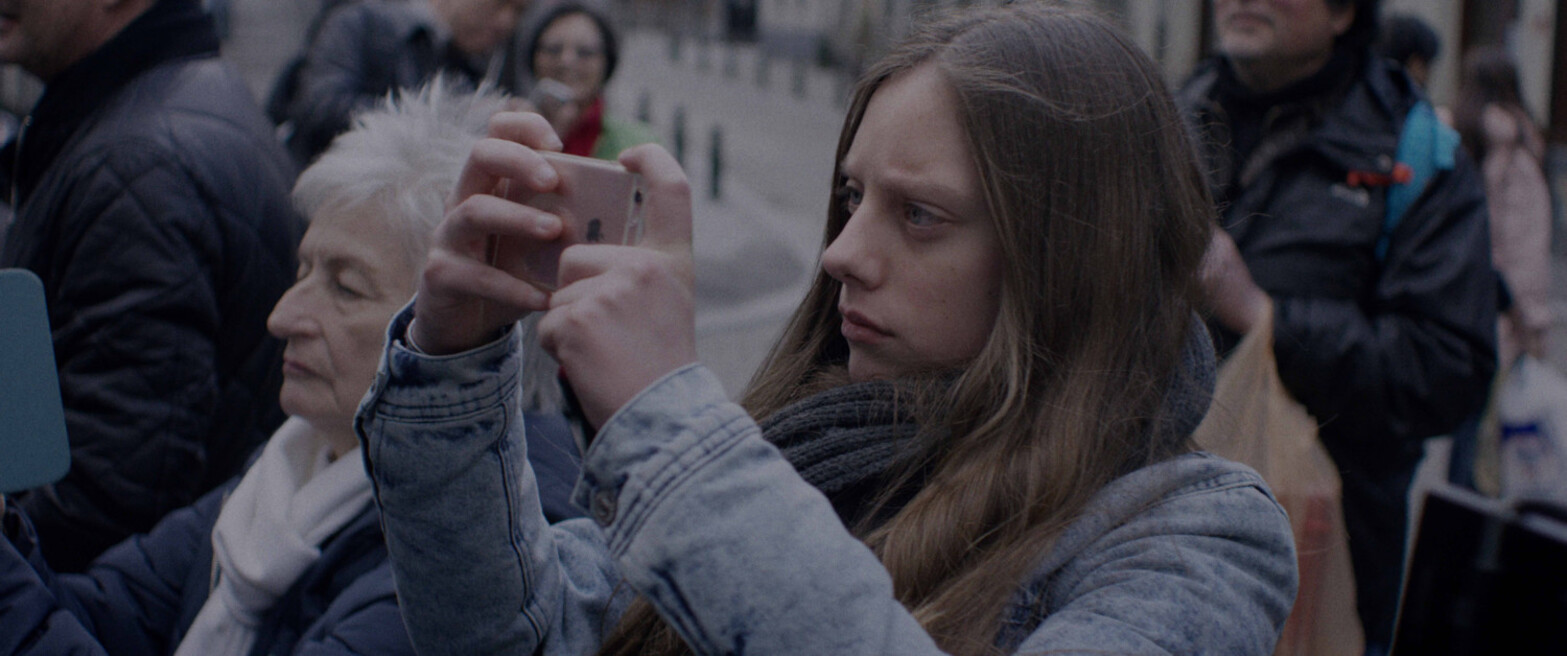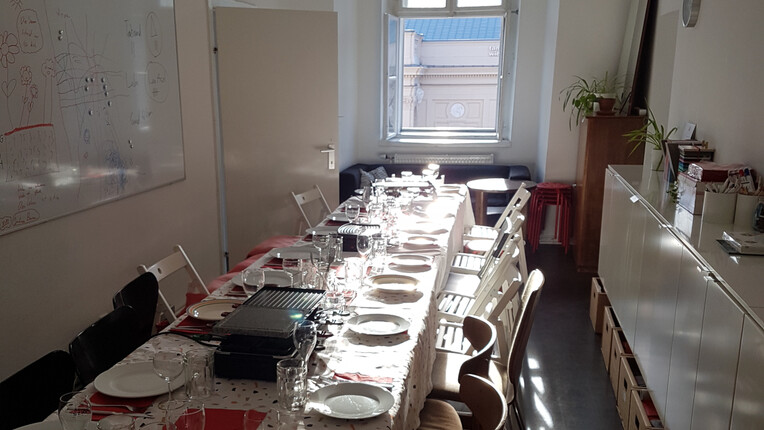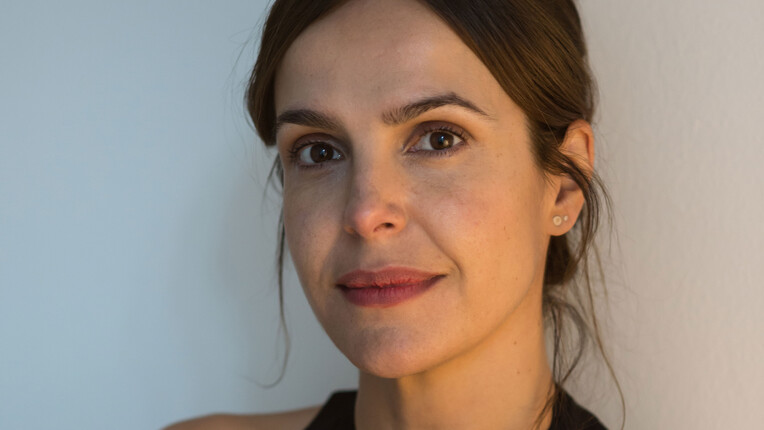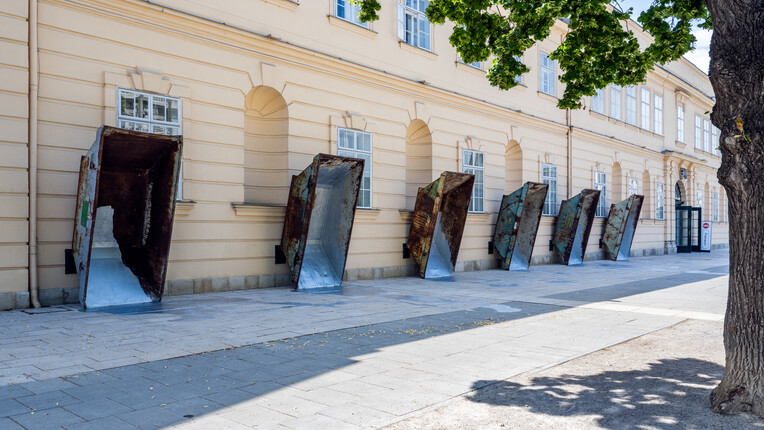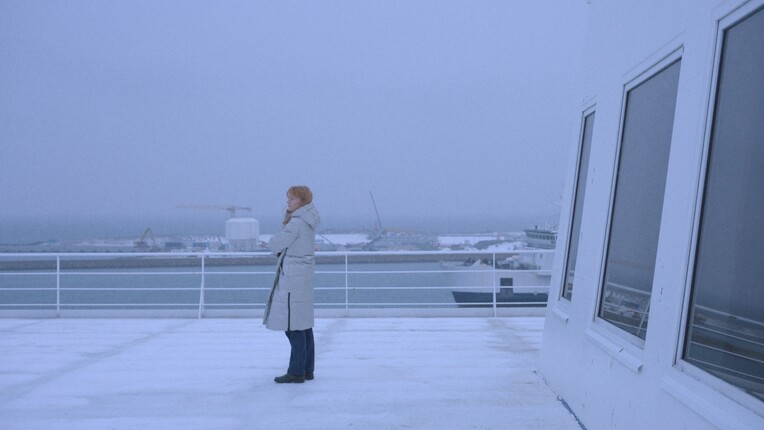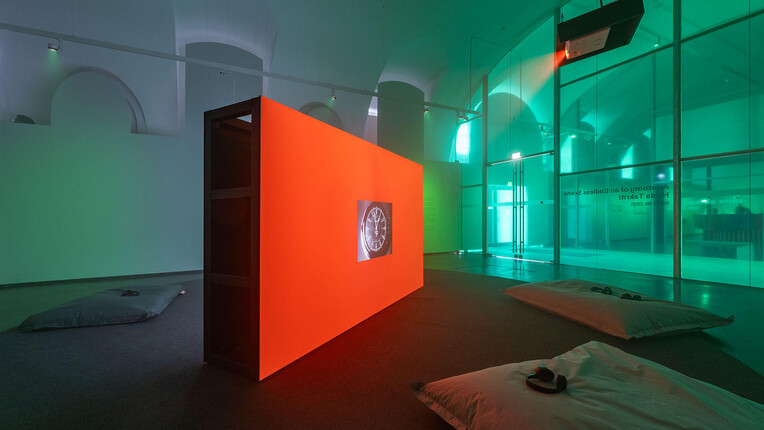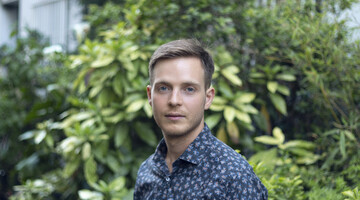
Ismaël Joffroy Chandoutis: We Need Short Films and We Need them Big.
Interview with French film director Ismaël Joffroy Chandoutis
Ismaël Joffroy Chandoutis is a French short film director. After his great success with his short film Swatted at Vienna Shorts 2019, he was invited to spend a month in Vienna as a Q21 Artist-in-Residence during the “Vienna Shorts – International Short Film Festival 2020.” Unfortunately, Ismaël couldn’t come to Vienna due to the worldwide pandemic. In the online interview, he talked to us about his former and current film projects, the Vienna Shorts Festival and about a tomato that travels the world.
Swatted is not only the title of one of your films, but a cyber-bullying phenomenon that the film deals with. Can you explain a bit what viewers can expect from the movie?
The Swatting phenomena is a very dangerous prank: Someone calls 911 – the police number in the US – and says things like “I’ve killed my mother and if you come to this address I will kill you too.” The people who do this prank don’t give their real addresses or names, but they target someone else instead. In the beginning the target-people were live streamers from the video-game community, but after a while Swatting became bigger – many different people are targeted now, as managers from Facebook or big companies were in 2019 for example. This prank is so dangerous, because the police take these calls seriously and really go into the target-people’s houses in the middle of the night. In the beginning, Swatting was more related to the cyber harassment of women, now it has become more political.
Now there are even Swatting compilations, which display many different cases. Swatting had already become a trend on the web around 2012. In the beginning a lot of stars were swatted as well, e.g. Justin Bieber. And once live streaming became very popular on platforms like YouTube, of course it went viral. From that moment on you could watch Swatting live, which might be a reason for the number of Swatting streams: The people who did this could actually be able to watch their prank like in a cinema and be proud of it. Of course, Swatters enjoy the pain of their victims, but to my mind it is also about power. Swatting is about the fact that people want to prove they are higher than the police, that they can even manipulate them. Exactly as they can with video games.
Why did you decide to design the film as a lingering between the real world and video-game reality?
The movie mixes testimonies from people who have been swatted, the real swatting from the internet and video-game footage that I have generated from a video game.
When I first heard about Swatting, I was actually watching a live stream. The live streamer was swatted live on camera and I didn’t understand it in the first place, whether if this was a joke or real. The live stream was about a video game with cops and terrorists, and suddenly in the video camera box you could see the police entering the streamer’s house.
It felt like virtual cops were invading the real world. There was this unclear frontier between the real and the virtual world, so I wanted my film to deal with this ambiguity. That’s why I mixed a lot of virtual and real footage, sometimes the virtual is more dominant than the real footage. I wanted to focus on the gaming community, that’s why I used a video game and webcam videos.
How did you start to make this short film?
I saw the Swatting online in 2015. Back then, I figured it could be a good idea to make a film about it, so I wrote down some notes. In 2017 I was in Le Fresnoy, an art residency in Tourcoing in north of France. In the second year I was asked to do a film project but without a camera. Because this whole subject takes place online, I decided to deal with this strict rule by using the video game and to do a shoot inside the game to let it remain virtual.
If you had to label this project as a genre, how would you classify it, as it oscillates between documentary, video game and reality?
For me it could be a hybrid film. It is somewhere in between genres, because I was using everything possible to express my idea. I even used footage that was already on the internet, because it served my subject. Video games were also interesting for me, so I used them as well. I didn’t have any restrictions and tried to think out of the box. That’s why people might say that Swatted is a hybrid, but it was not a goal from the beginning to create a hybrid. This time the subject really forced me to create the short this way.
I actually think we have to stop talking about labels, because they can be wrong. For example, documentaries are usually related to TV, so we have a preconception of TV documentaries, but if the documentary topic were about the virtual, we would have to go beyond the “normal” idea of documentaries and to re-think it.
You also use a similar technique in Dark Waves, where the real world starts to blur into waves. Dark Waves shows people who have allergic reactions to electromagnetic waves and are struggling hard to live a normal life. Is it your aim to raise awareness of the other side of the coin of our current technologies such as mobile signals, the internet and how it can empower people?
The Dark Waves project started, because I read a touching article in Le Monde about people in Switzerland who tried to build a bunker to protect themselves against electromagnetic waves. This is how I even realized that some people have intolerances to these waves. For me it was really surprising to hear about it, because I use the waves every day, of course.
As I did some research about this topic, I found another article that pointed out that waves could actually be dangerous. Opinions on this are divided – there are people who don’t believe it and try to prove their opinions with old scientistic evidence, and in contrast there are people who are trying to raise awareness of the dangers of electromagnetic waves. Because of these different opinions, I decided that I wanted to meet some of the people concerned. Their experience with this topic really touched me and I felt the urge to make a film about it.
I don’t know if I am more interested in technological topics, but just for now I am apparently – maybe it will be different in the future. But I am always working on subjects that really touch me.
Are you currently already working on a new project?
Yes, I am working on a film about a woman, Sabine, who woke up in a hospital covered with scars on her face and shaved hair. She was told that she survived the terrorist attack on 22.03.2016 in the Brussels metro station. She doesn’t remember that day at all. The movie is therefore about amnesia and invisibility. For her it is also an attempt to find the missing images, and for me about how I can present this broken, missing memory and the emptiness.
I decided to mix documentary in a way with internal reality and the mental state of imagination. This idea came up in between Dark Waves and Swatted. It’s a four-year project I started to think about again recently. It’s a difficult project, so I really needed to work on it, then to give it a rest and to start working on it again. I hope to finish it for September.
Actually, you would have been an Artist-in-Residence at Q21/MuseumsQuartier Wien now, but couldn’t come due to the Covid-19 pandemic. And how does the pandemic affect your work?
I have to admit that I came back to Paris in February and had to work a lot, so I stayed in my house for 15 full days, right before quarantine started. It was a little practice for me.
Seriously, this lack of freedom really affects me. No longer having this routine that helps me to keep going and to be creative was definitely the biggest restriction for me. But I managed to do a lot of my work in my house and it helped me to think about what really matters to me. It is definitely more about the small things, not about big travels – I found out that you could even do a big travel around your bedroom, like Xavier de Maistre in Voyage Autour de ma Chambre.
How important are these residencies for you usually?
This quarantine time was actually a residency, but it was really a bad one, because I couldn’t go out at all, it was too intense. I prefer the real ones, which are really important and always helpful to find a new focus. When you are in another city and don’t know anything or anyone, you are very open to discovering new things. For a lot of people who want to change their own rules and to think differently about their way of life residencies can help a lot. I definitely can’t wait for another period of residencies. My first time to Vienna was for Vienna Shorts 2019, and, besides that, I am a big fan of experimental film and École de Vienne. Even if it’s invisible, it has really influenced my ideas about how to think about cinema on non-narrative aspects. Also the movie I am making now will be influenced by it, because I am always looking for a way to look at topics differently. And especially with sensitive topics on terrorism, like my current one, you need to be careful. There is a very thin line between what is necessary and what is not possible. For example, a very good short movie about 9/11 is the one by Alejandro González Iñárritu. The way Iñárritu dealt with the topic was very smart.
What do you appreciate about the Vienna Shorts Festival?
I like the whole selection of the movies, the fact that they have a very wide spectrum of films in different categories. It is really one of these festivals where I am 100% happy with the selection. Of course, you can like or dislike certain movies, but every film has an interesting point. There are not many festivals like that, where I appreciate the whole selection of the shorts.
Vienna Shorts managed to change its concept and to launch an online edition of Vienna Shorts 2020. What do you think about this adapted festival format?
This is a difficult question, because I can only talk about it as a regular spectator. I think it is a good idea to do it online, because there is so much work from filmmakers and the festival organizers behind Vienna Shorts that deserves to be shown.
But even if the festival is online this year, it won’t be the same as usual. The way we look at the films will not be the same for everyone, unfortunately. Some people will watch the films using a smartphone, some will watch it on TV, maybe on a tablet or with video projectors – it is OK that we will have different perspectives this year, I would say it is very progressive edition.
But to my mind it is always better to go to theaters and to cinemas to watch the films. The online format is a great idea for this year, as there is no other option, but I don’t want online film festivals to become the standard. Films and theater are also about meeting other people. I like to sit next to strangers and to feel the intense emotions of others and to talk to them afterwards. Films become something bigger through joint watching. You can’t have this experience online.
Do you think that the pandemic and lock down will also have benefits on the short-film business?
I hope that huge online presence to escape this reality has helped to gain more visibility and a real platform for short films. Until now Vimeo has probably been the best potential platform for short films, but it mixes too many different themes honestly. Recently I discovered "Kinoscope", it's definitely the platform to follow right now. It has a new good curation. Also I assume, that the “short before the feature” format from 1950s would be the best for shorts again. I always want adverts, trailers, short films and a feature. This is something that you only have left in a few theaters in France, but I would love to have it everywhere again. We need to create more visibility for shorts. So maybe this quarantine period was good at least for online film platforms.
What would you like to change about the short film business, if you could?
I would really like to have a curated platform for innovative shorts. You have a lot of shorts which are very successful online, but they are often about comedy or short animation films. It is something close to Vimeo content, so I really think that a dedicated MUBI short-film platform would be really good. This platform should have a user-friendly interface and be connected to social media, so it can try to catch people who normally wouldn’t choose to watch short films. I am not against watching films on smartphones and small displays, but for some shorts it might still be difficult, so this platform should also provide information about the format that works for the film and “warn” people if they are choosing a device that won’t work. Because we need shorts and we need them big.
What is your ultimate short film-tip?
Isle of Flowers. It’s a really surprising documentary about a tomato that travels around the world. The film deals with the topic of globalization and resonates with what is going on in the world right now. It is a great film, which stays. This film really needs to be “the short before the feature” film in old theaters and cinemas.
Thank you for the interview.
Interview: Ann Cathrin Frank
